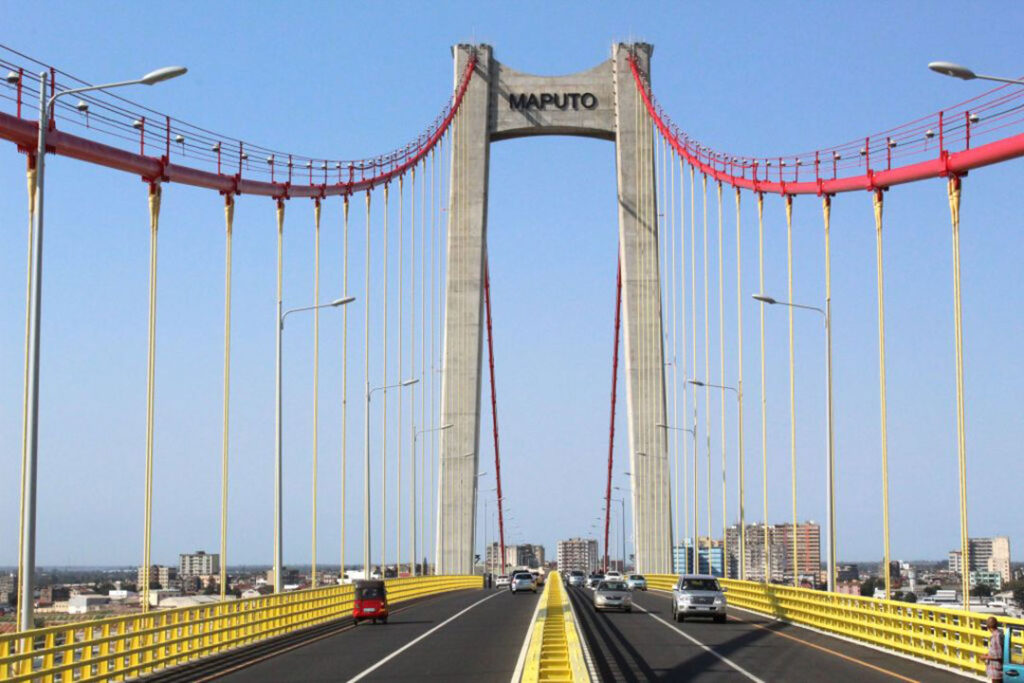ADF STAFF
Mozambique has joined the growing list of African nations seeking — but rarely receiving — relief from their overwhelming debts held by Chinese lenders.
“We have been working with our bilateral creditors. We are just waiting for the decision,” Adriano Maleiane, Mozambique’s minister of economy and finance, said during the World Bank’s annual meeting, held virtually in October. “So far, we have not received formal reaction from creditors. We assume they are doing their best.”
Mozambique owes about $15 billion to foreign creditors, which is equal to about 100% of its gross domestic product. At least $2 billion of that goes to China, which is Mozambique’s largest creditor. Over the past decade, Mozambique’s Chinese debt grew from $45 million. Much of that borrowed money went to infrastructure improvements.
Those improvements, such as the massive Maputo-Katembe suspension bridge, received financing from China’s global Belt and Road Initiative, the same program that has saddled dozens of African nations with tremendous debt. The worldwide economic downturn caused by the COVID-19 pandemic has left Mozambique and other nations with the difficult choice of caring for their citizens or repaying debts.
The Center for Public Integrity examined ways Mozambique’s debt to China has affected its COVID-19 response. Its bottom line: Debt to China is a drag on the country’s ability to help its people fight the pandemic.
“The investment options taken in the past with China’s resources, despite having previously contributed to the gross domestic product, have had little impact for the country,” the report noted. “That is why now large social investments are still needed to face the various challenges imposed by the pandemic.”
Although global institutions such as the World Bank and International Monetary Fund have offered Mozambique and other African nations blanket debt deferrals, Chinese banks have been more resistant to offering relief. Under an agreement brokered by the G20, China has suspended some small government loans.
Chinese policy banks, which finance infrastructure projects, and private lenders have been less generous. In some cases, Chinese banks have offered to suspend principal payments, leaving debtor nations saddled with making interest payments.
Mozambique has asked its Chinese creditors, including China’s Export-Import Bank, for relief on $1.3 billion in loans. The Ex-Im Bank is one of China’s policy banks.
“At this stage, we just wait to see what will be the response,” Maleiane said.
Mozambique’s neighbor, Zambia, has spent much of 2020 pursuing similar relief from huge debts to Chinese lenders with little to show for it. In October, Zambia skipped a Eurobond debt payment and indicated that it will likely default on other debt payments.
That path opens up the possibility that its Chinese creditors may foreclose on the infrastructure those loans financed, including Zesco, the national power company.
Global debt-rating agency Moody’s Investors Services downgraded Zambia’s credit rating after its partial default. It sees Mozambique as the next potential candidate for a default.
As with Zambia, it’s unclear exactly how much Mozambique owes to its Chinese lenders, some of whom impose confidentiality clauses. That has created a raft of so-called hidden loans that fall between the cracks when assessing Mozambique’s actual debt. An estimate by Reuters in 2019 put Mozambique’s debt to China at about $5 billion — one-third of its total debt.
The Center for Public Integrity described the scale of Mozambique’s debt and its lack of fiscal transparency as “frightening.”
Mozambique defaulted on debt payments in 2016, an action that caused its currency to lose 60% of its value. Ongoing depreciation due, in part, to the economic strain caused by COVID-19 has contributed to problems with repaying its debts, Maleiane said.
Mozambique wants to avoid a repeat of its 2016 default on privately held debt.
“We’re doing everything possible to create confidence for our creditors,” Maleiane said during the World Bank virtual forum. “We need to have private sector support. We should not create doubt in terms of the future; otherwise, the cost of borrowing will be more expensive from the private sector.”

